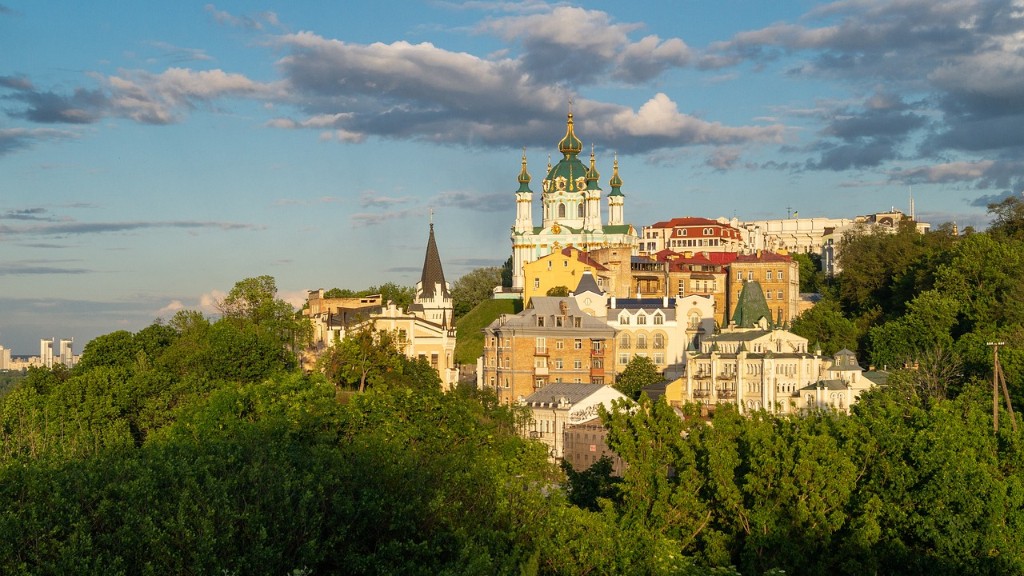History of Ukraine
Ukraine is a country in Eastern Europe with a rich history, culture and a complex political situation. Ukraine has a long and troubled past and its modern history is full of struggles and revolutions. Ukraine’s modern independence began in 1991, when it became the successor state of the Ukrainian Soviet Socialist Republic, which was part of the Soviet Union. Since then, the politics of the country has been very turbulent, due to multiple internal and external issues.
From the beginning of its independence until 2014, Ukraine was closely allied to Russia, its eastern neighbor and former ruler.Ukraine is the only post-Soviet state to have a comprehensive military alliance with NATO, the North Atlantic Treaty Organization, while also maintaining ties with Russia. Its ambiguous relationship with both Russia and NATO has had a great influence on its politics and security.
Ukraine has long sought to become a member of the European Union, but this has been put on hold due to a number of issues, including the ongoing conflict in the country’s eastern territories and the economic crisis brought on by the global pandemic.
Political reasons
The primary reason why Ukraine has not become a member of NATO is due to the political situation in the country. It is widely believed that Russia is opposed to the idea of Ukraine joining the alliance, due to the perceived threat it would pose to Russian security. Russia has also been antagonistic towards the idea of Ukraine joining NATO, due to its close ties to the country and its role in the conflict in Eastern Ukraine, which has escalated in recent years.
Another reason why Ukraine has not joined NATO is its economic instability and its unsuccessful attempts to reform its economy and government. The country’s government has been slow to enact reforms that could benefit the country, while the economy remains fragile. This has made it difficult for the nation to meet the economic criteria for NATO membership.
It is also worth noting that, despite its efforts to distance itself from Russia, Ukraine still retains strong cultural and political ties to the country, which could raise questions about its security and loyalty to the alliance. This could potentially make it difficult for the country to join NATO without causing serious repercussions.
Geopolitical Reasons
Ukraine’s geopolitical position is another major factor when it comes to its membership in NATO. Strategically, Ukraine is located in a region of great importance to the alliance. Its proximity to Russia, as well as the presence of numerous former Soviet countries, make certain nations wary of Ukraine joining the alliance. This is due to the fact that the alliance’s policy is centered around collective defense, meaning that members would be obligated to defend Ukraine if it were attacked.
In addition, the presence of Russia in the region, as well as the ongoing conflict in eastern Ukraine, have caused NATO to be cautious in its approach to the country. The alliance is wary of provoking or escalating tensions in the region, as it could lead to further instability in the conflict.
Protests and Reactions
In recent years, the idea of Ukraine joining NATO has gained some traction among the public, due to a strong desire to move away from Russia’s political dominance. A large protest in Kyiv’s Maidan Square in 2014, known as the Euromaidan, pushed for closer ties with the West, and for the government to sign a trade agreement with the European Union. This led to the ousting of former President Viktor Yanukovych and a number of other reforms in the country.
However, the move towards closer ties with the West has been met with resistance from Russian President Vladimir Putin, and the conflict in eastern Ukraine has worsened as a result. Russian officials have repeatedly threatened to take military action if Ukraine were to move closer towards NATO.
However, Western allies have consistently supported Ukraine’s sovereignty and condemned Russia’s aggression in the region. In 2016, the NATO-Russia Founding Act declared that NATO’s enlargement would not be directed against Russia, and in 2020, the alliance reiterated its support for Ukraine’s ties with the West and its desire to join the alliance.
US Policy
The United States has also taken a strong stance in support of Ukraine’s desire to join NATO. The Obama administration declared its support for the country in 2014, and the US has consistently provided military and financial assistance to the country. In the Trump administration, the US further intensified its support for Ukraine, providing additional assistance and providing diplomatic cover for the country.
The US has also sought to ensure that there is a clear path for Ukraine to join NATO. In 2017, President Trump met with Ukraine’s president Petro Poroshenko and made clear that the US would support Ukraine’s bid for NATO membership if certain conditions were met. These conditions include political and economic reforms, as well as furthering anti-corruption efforts.
However, despite the US and other Western nations’ support for Ukraine’s bid, the country has yet to join the alliance. This is primarily due to its lack of solidarity with its allies, as well as due to the ongoing conflict in eastern Ukraine, which has hindered its efforts to move closer to the alliance.
International Organizations
In addition to NATO, Ukraine has sought to join other international organizations, including the European Union and the Council of Europe. In 2017, the country applied for a visa-free regime with the EU, which would allow Ukrainian citizens to travel to and from the EU without visas. However, the process has been prolonged due to the conflict in eastern Ukraine and the ongoing economic crisis.
However, Ukrainian officials have been optimistic that the country will eventually join the EU, citing the large number of reforms that have been undertaken in recent years. In particular, the country has sought to root out corruption and has implemented measures to improve the rule of law and strengthen human rights.
Ukraine has also sought to become a member of the Council of Europe, an organization dedicated to promoting democracy, human rights, and the rule of law. In 2018, the country was granted observer status in the organization, a major step towards full membership. It is hoped that Ukraine’s eventual membership in the EU and the Council of Europe will create more opportunities for the country.
Conclusion
Ukraine’s path to Euro-Atlantic integration has been a complicated one. The country has faced numerous internal and external challenges, which have hindered its aspirations to join NATO and other Euro-Atlantic organizations.
Despite this, the country still retains strong ties to the West, as evidenced by its close relationship with the US and its support for various international organizations. It is likely that, in the coming years, Ukraine will continue to take steps towards closer integration with the West and that it will eventually become a member of NATO, although it is unclear when this will happen.




